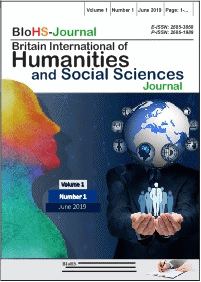The Case Study Method: A Paradoxical Research Specificity and Multiplicity
Abstract
The case study method remains one of the most debated yet widely employed qualitative research strategies across disciplines. Its strength lies in its capacity to explore complex phenomena within real-life contexts, yet it is often critiqued for lacking generalizability and methodological rigor. This paper interrogates the paradoxical nature of the case study method, examining how it simultaneously embodies research specificity through in-depth focus on a single or bounded case and multiplicity by offering rich, transferable insights applicable across contexts. Drawing on key theoretical perspectives and methodological debates, the study explores the dual identity of the case study as both a unit of analysis and a research design. Through illustrative examples from social sciences and humanities, the paper reveals how the method’s flexibility challenges rigid research classifications while enabling profound contextual understanding. The conclusion advocates for a more nuanced appreciation of the case study method’s potential, calling for clearer methodological frameworks that embrace its paradoxes rather than obscure them.
Downloads
References
Crowe, Sophie, et al. "The Case Study Approach." BMC Medical Research Methodology, vol. 11, no. 100, 2011, doi: 10.1186/1471-2288-11-100.
Flyvbjerg, Bent. Five Misunderstandings About Case-Study Research. In Qualitative Inquiry and Research Design, edited by Norman K. Denzin and Yvonna S. Lincoln, Sage Publications, 2006, pp. 69–86.
Hatch, J. Amos. Doing Qualitative Research in Education Settings. 2002.
https://trymata.com/blog/what-is-a-case-study/. Accessed 31Aug.2024.
Nasir, Olaide and Nasir, Adeyinka.Understanding Research. 1st ed. Ibadan. Poetry Enclave (POEN), 2023.
Merriam, Sharan B. Qualitative Research and Case Study Applications in Education. 2001.
Yin, Robert K. Case Study Research: Design and Methods. 2003.



.png)
_.gif)
















_.gif)












